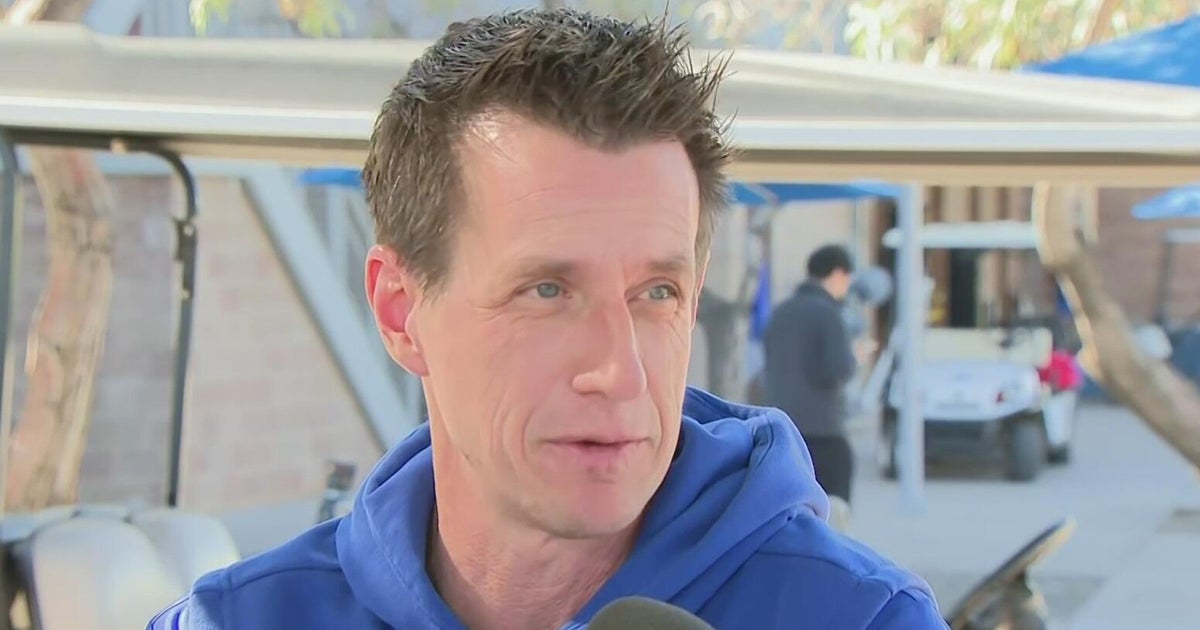Massarotti: Can The Red Sox Win Low-Scoring Games?
BOSTON (CBS) – Plain and simple: if they hit, they will win. The question is whether the Red Sox can win when they don't swing the bats.
Don't look now, Red Sox fans, but your team is swinging the bats again. The Sox teed off on the wretched Chicago White Sox and blasted their way to a 9-5 win at Fenway Park last night, extending a much-needed winning streak to three games as they began the official stretch run of the 2017 season.
In their last three games, the Sox are batting a whopping .381 and have scored 27 runs, and they have three more games remaining with a washed-out White Sox club that has a Triple-A lineup and should be playing against the Rockford Peaches.
Remember: in Major League Baseball, the line of demarcation between winning and losing comes at five runs. You score five, you usually win. You don't, you usually lose. With last night's victory, the Red Sox are now 46-7 when they score five runs or more, which makes perfect sense given the strength of the Boston pitching staff.
Want more good news? The Sox are 9-5 when they score exactly four runs. This suggests the Sox overall pitching has been so good that they still win nearly 65 percent of the time when most teams would go roughly .500.
In the end, we are all left to wonder the same thing we wondered a year ago at this time, albeit from the entirely opposite direction: can the Red Sox win low-scoring games?
A year ago, Boston struggled to win closer, lower-scoring contests because their pitching wasn't good enough to hold down the opposition. Now, the opposite is true: the Sox can't win closer, lower-scoring games because they can't find a way to consistently generate offense.
All of this raises three questions as the Sox have embarked on the final 54-game stretch of the 2017 season:
The Base Running
Please, enough excuse-making about how the Sox get thrown out on the bases because they have to play aggressively. There is a difference between bad base running and stupid base running. Last night, despite the win, the Sox were thrown out on the bases three times - once at home (Hanley Ramirez) and twice at third (Andrew Benintendi on both occasions). Boston has now been thrown out on the bases a major league-leading 59 times, including 23 times at home (also the most in the majors) and 14 times at third base (also the most).
Yes, some of this pays off. But much of it doesn't. For a young guy with fresh legs and good baseball instincts, Benintendi, in particular, is this generation's answer to Steve "Psycho" Lyons, who didn't get his nickname from being a shrewd baserunner. Say hello to "Psycho II." Let's hope the Sox clean this up a little before it really hurts them in big games.
The Bullpen
OK, so most every team has this problem by default. And obviously, the Red Sox just added Addison Reed, who should help. But among the most noteworthy developments in last night's game was the appearance of Reed in the seventh inning, suggesting the Red Sox are still traumatized by Andrew Miller from last year's Division Series loss to Cleveland.
Can Reed really be Andrew Miller?
"Addison knows it's going to be seventh inning or later," manager John Farrell told reporters last night. "The seventh and eighth inning, we feel they're interchangeable based on matchups, based on strengths of individual guys."
On paper, this obviously makes sense. Reed pitched the seventh last night because the White Sox were in the meatier part of their order. So long as Reed pitches well, Farrell can probably use Craig Kimbrel as an insurance policy to rescue Matt Barnes et al in the eighth, at least in late September or October.
Two things to watch here: can the Sox get any consistency beyond Reed and Kimbrel, both of whom gave up late-inning home runs on Tuesday night. Kimbrel, in particular, has a 4.00 ERA over the last few weeks and has been more hittable, which raises an obvious question: is he feeling the effects of aggressive, early-season usage?
The Manager
Items one and two on the list both involve one key person: Farrell.
In the case of the bullpen, the Sox are now relying on Farrell to make the right call at the right time, which is a worrisome frightening proposition for those of us who have long questioned his game management skills.
Terry Francona was able to turned Andrew Miller into a weapon in part because Francona has a great feel for the game. Miller is also on what amounts to a contract worthy of a closer. Can Farrell use Reed the same way? Can Reed handle it?
Remember: the Sox started going haywire with infield shifts once they saw Joe Maddon shuttle infielders back and forth like they were running wide receivers in motion. It's one thing for Maddon and Francona to play musical chairs. It's another entirely for Farrell and the Red Sox, who have a tendency to overthink things.
As for the offense, Farrell is a concern there, too. When the Red Sox lost to the Yankees in 16 innings last month, they had runners at first and second with nobody out in the 10th inning. For a team that has had trouble scoring, the situation screamed for a bunt. They Red Sox didn't, then didn't score. And didn't win.
Bottom line: the Sox need to make better decisions going forward. And that starts with Farrell.







